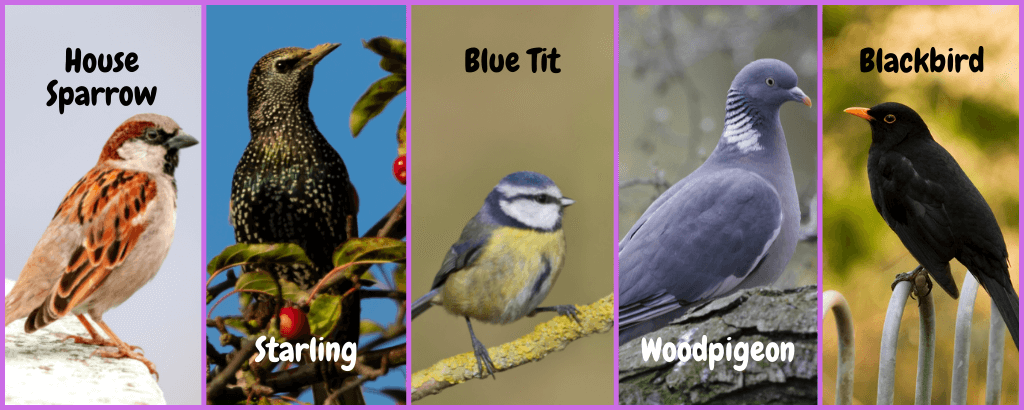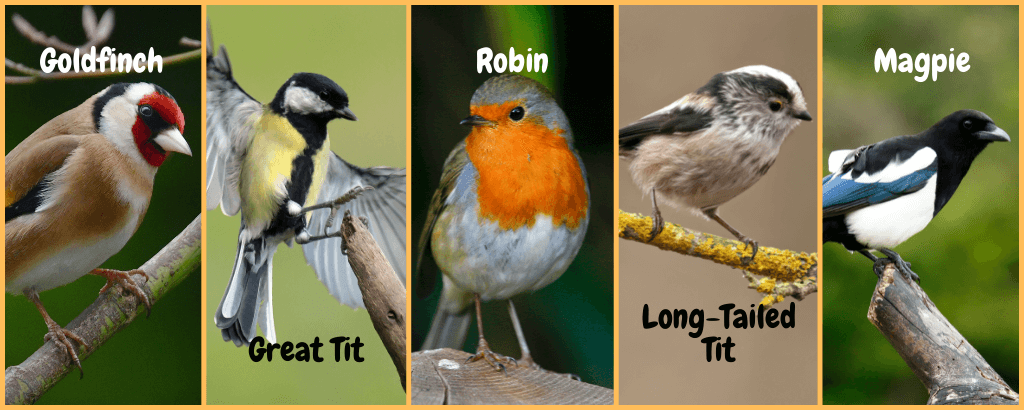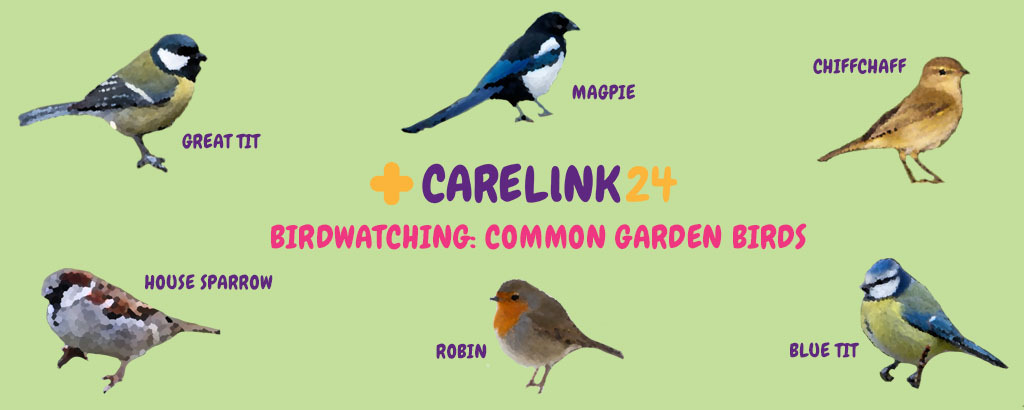We constantly hear the noises of birds, from first thing in the morning through until the middle of the night. You’ve certainly heard the song of the blackbird or the cooing of a pigeon on the bird table. Perhaps you’ve even heard the woodpecker in the trees or an owl hooting in the late hours. But how much do we really pay attention to the wildlife around us? Why not take up the hobby of birdwatching? The best place to start is by keeping an eye out for common garden birds.
9 Tips to Get You Started
- Study the field. Purchase a good, detailed guide which helps you identify your local varieties of birds.
- Keep an ear out. Learn to spot common garden birds by their calls.
- Invest in a good pair of binoculars.
- Start close to home. Try out birdwatching in your garden to begin with. Later you could venture out to your local park.
- Plan and prepare. Before you start, take a minute to research what types of birds you can expect this time of year. Your guide could be particularly useful.
- Consider joining a local birdwatching group. You’ll get to know others who will be happy to share their knowledge and experiences.
- Take notes. Get into the habit of keeping a birdwatching diary. This well help you keep track of the common garden birds you’ve seen and where.
- Snap away! Take pictures if you can. You don’t need a fancy camera; your smartphone will do. Keeping a visual record is useful to refer to. You can also share the images with your fellow birdwatchers.
- Most importantly, have fun!

Most Common Garden Birds in Britain
These are some of the most common birds you are likely to spot in your garden. Note their distinctive markings and see if you can spot any in your garden.
- House Sparrow – The black bib and facemask feature is unique to males.
- Starling – Appear black at a distance, but have glossy green and purple iridescent plumage up close.
- Blue Tit – Perhaps one of the most well-known birds. Most likely seen in trees.
- Woodpigeons – Pigeons are greedy birds that will take food from bird tables and the floor.
- Blackbird – Males fit the name perfectly. Females and young blackbirds are brown and red with spots and streaks across their breasts.
- Goldfinch – Distinctive with its bright red, white, and bold yellow colouring.
- Great Tit – The largest UK tit with a distinctive two-syllable song.
- Robin – Red-breasted icon now synonymous with winter.
- Long-Tailed Tit – Lives up to its name. Small, pretty, with pink, black and white plumage.
- Magpie – 1 for sorrow, 2 for joy, 3 for a girl, 4 for a boy, 5 for silver, 6 for gold, 7 for a secret never to be told. Intelligent birds with unmissable blue, black and white feathers. They are one of few animals that can recognise their own image in a mirror.
Key Fact: Males possess brighter colours and feathers than females.

How Can I Attract Common Garden Birds to My Garden?
Whether you have a small city patch, or acres of land, you can still draw birds into your garden. We have a few ideas that you might not have considered to tempt birds into your garden.
- Put suitable food on a bird table and in feeders. Even one that sticks to a window will do the job!
- Birds eat different foods. Seeds are a favourite of sparrows and finches. Fat balls will appeal to tits, and fruits and worms will attract thrushes and robins. If you have leftover fruits or nuts, you can put them out for the birds too – as long as they’re not mouldy.
- Don’t forget to put out fresh water – a saucer or a Tupperware box will do. Be sure to regularly clean feeders and tables to avoid diseases.
- Places for birds to nest are key. You can plant some native trees or shrubs for them to shelter in, or even put up a nest box or two.
Set up a chair and grab the binoculars, and see what birds come flocking to your garden. Happy birdwatching!
Staying Safe with Carelink24
It is important to stay safe at home. Purchasing a Carelink24 alarm offers peace of mind at competitive prices. You can find out more about our personal alarm service by reading our alarm guide. To order your Carelink24 alarm, check out our price plans or call our helpful customer service team on 0800 0076 247.


